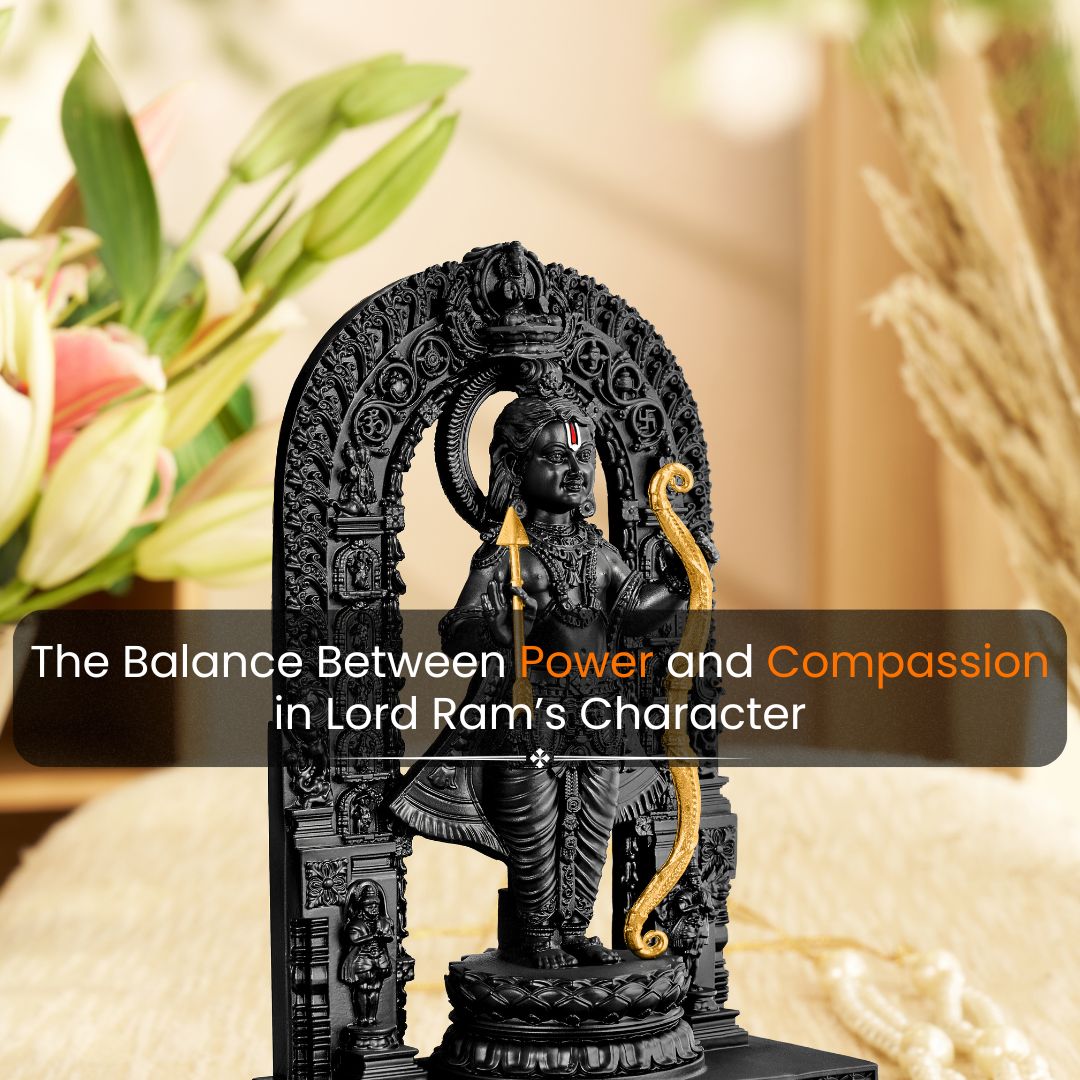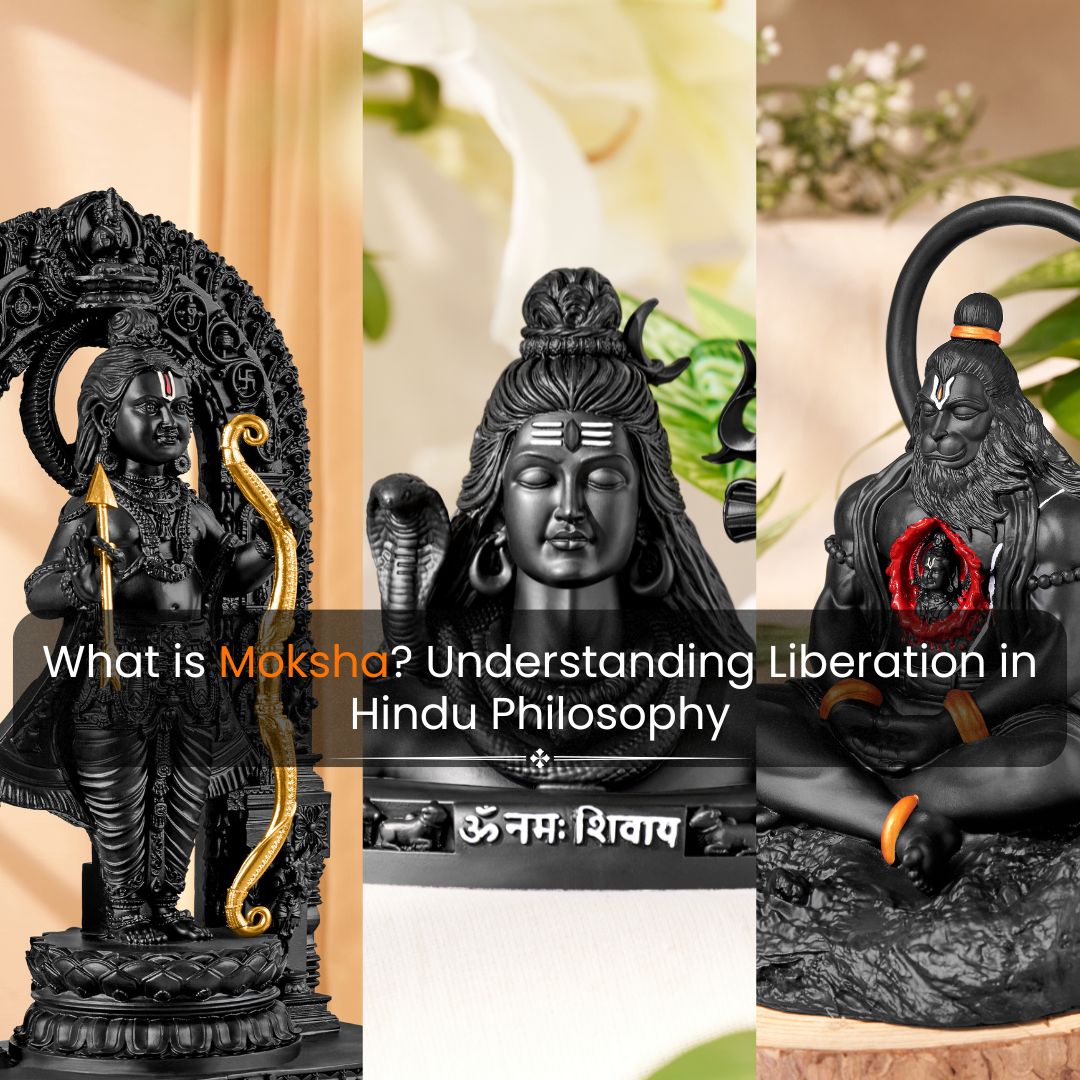
The Balance Between Power and Compassion in Lord Ram’s Character
Lord Ram, one of the most revered deities in Hinduism, is not only remembered for his heroic deeds but also for his profound sense of compassion. Known as Maryada Purushottama—the ideal man—he represents the perfect harmony of strength and sensitivity. His life is a shining example of how true greatness lies not just in power, but in how that power is used—with empathy, kindness, and unwavering righteousness.
Let us explore how Lord Ram’s character beautifully balances power and compassion, and why his life continues to inspire millions even today.
1. Power with Purpose: Lord Ram's Warrior Spirit
From a young age, Lord Ram displayed immense physical and spiritual strength. Trained in warfare and scriptures, he was unmatched in battle. His defeat of powerful demons like Tataka, Subahu, and ultimately Ravana, shows his capability as a warrior.
However, Lord Ram’s use of power was never fueled by ego or anger. Each act of valor was performed as a duty (dharma), not for personal gain. His strength was always used to protect the weak, uphold justice, and restore peace. This ability to wield power with discipline and moral clarity made him not just a hero, but a divine role model.
2. Compassion at Every Step: The Gentle Heart of a Warrior
Despite being a mighty warrior, Lord Ram’s heart was filled with compassion. He showed immense kindness toward all beings—human or otherwise. He treated even his enemies with dignity. A poignant example of this is seen when, after defeating Ravana, he instructed Lakshman to learn from the fallen king, acknowledging Ravana's knowledge and strength.
In his interactions with the tribal woman Shabari, the boatman Guha, and his devoted follower Hanuman, Ram never judged by status or birth. His humility and compassion allowed him to form deep bonds with people from all walks of life.
3. Leading with Empathy: A King for the People
As a ruler, Lord Ram placed the well-being of his people above all else. Even when it meant personal loss, he acted in the interest of his kingdom. The most striking example is when he chose to send Sita away to the forest, not because he doubted her, but to uphold the voice of his subjects.
Though painful, this decision was made with a heavy heart and for the sake of public trust and responsibility. It showed that Lord Ram valued his role as king and protector above personal emotions—a true mark of balanced leadership rooted in both strength and compassion.
4. Forgiveness Over Vengeance
Lord Ram’s life is filled with examples of choosing forgiveness over revenge. He forgave Kaikeyi, whose actions led to his exile, and he respected Bharat, who ruled in his name without sitting on the throne. Even after facing numerous betrayals and hardships, Ram never acted out of anger or hatred. His capacity to forgive elevated his moral stature and showed that compassion is not a sign of weakness but a form of strength.
5. The Role of Dharma: Balancing Justice with Kindness
Throughout the Ramayana, Ram’s decisions are guided by dharma—the cosmic law of righteousness. He never acted impulsively. Whether it was punishing wrongdoers or offering mercy, each action was weighed carefully. This unwavering commitment to dharma ensured that his power never turned tyrannical, and his compassion never became misplaced.
He walked the delicate line between being a just king and a loving husband, a fierce warrior and a gentle soul, making his story one of timeless balance.
6. What We Can Learn Today
Lord Ram’s life holds powerful lessons for today’s world, especially in areas of leadership, relationships, and personal growth.
-
In Leadership: Ram teaches that true leaders are those who serve their people with strength, empathy, and humility.
-
In Personal Conduct: His actions inspire us to be kind, fair, and strong in our own lives—whether as parents, friends, or professionals.
-
In Times of Conflict: Lord Ram reminds us to choose understanding over revenge, and justice over personal gain.
7. The Legacy of Lord Ram’s Character
Lord Ram’s story continues to resonate across generations because of this delicate balance. He wasn’t just a divine incarnation with superhuman abilities—he was a human being who made difficult choices guided by virtue. He showed us that the highest form of strength is not brute force, but restraint guided by wisdom. And the purest compassion is not blind emotion, but kindness rooted in justice.
8. Conclusion: A Timeless Ideal of Strength and Compassion
The character of Lord Ram is not just a symbol of divine greatness—it is a blueprint for righteous living. In him, we see how true strength lies in discipline, not aggression, and how true compassion lies in understanding, not passivity. His life reminds us that we can be powerful without being harsh, and kind without being weak.
In today’s fast-paced world, where strength is often mistaken for dominance and compassion for weakness, Lord Ram’s life stands as a glowing example of balance—showing us that when strength and compassion walk hand in hand, true greatness is born.




















